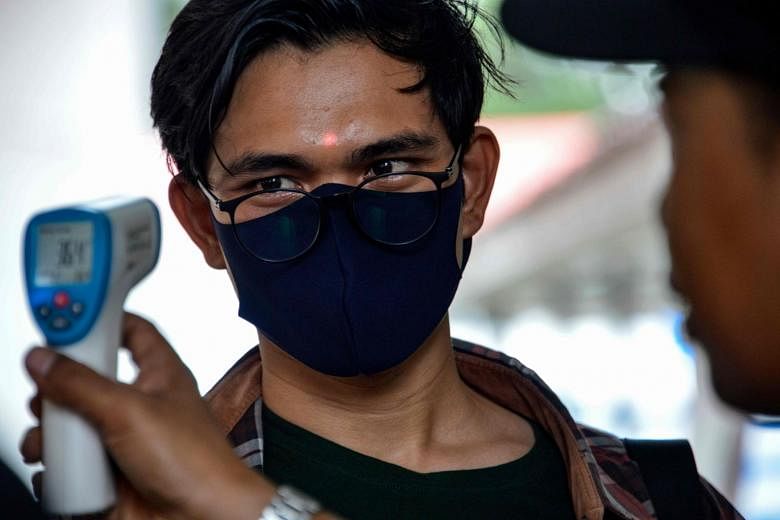JAKARTA (THE JAKARTA POST/ASIA NEWS NETWORK) - The escalating number of new Covid-19 cases and the first fatality in Indonesia were well expected.
The government's sluggish response, if not complacence, during the first two months of the global outbreak has potentially led to many missed cases and more possible deaths.
On Wednesday (Mar 11), the government announced the first death from Covid-19, a 53-year-old foreign citizen identified as Case 25 who died three days after starting treatment.
On Tuesday it announced the first possible local transmission of the novel coronavirus when a 33-year-old man became the 27th to test positive in the country. The government has yet to discover who infected him as he had no apparent links to other confirmed cases or a recent travel history to affected countries.
We can expect more to come. With the best information available about the disease, all citizens should be able prepare themselves and their families.
Also, as most countries have recorded low death rates, it is well understood by now that the disease, despite being highly contagious, can be mitigated and most patients can recover.
What's worrying is that the government has yet to become a trusted authority at this time of crisis.
After the full personal information of the first two cases was leaked and led to public intrusion into their privacy, the government became more tightlipped about other cases - to the extent that it has not revealed the cities or provinces where the patients lived, including Case 27.
While the government may well intend to prevent panic and anxiety, withholding geographical information is by no means a wise decision.
As testing remains very limited to suspected patients who have shown symptoms and who are under quarantine, the virus may spread undetected among people who live nearby or have possible contacts with those infected.
This means they may not get help as their health deteriorates and they might infect others.
Other countries, including South Korea and China, have taken more heightened measures to contain the disease by testing hundreds of thousands of people with or without symptoms.
In Singapore, travellers arriving with symptoms are now obliged to take quick tests at all air, land and sea checkpoints.
Before the government can conduct widespread testing, it is critical to provide citizens with the best information so they can protect themselves from the disease.
Moreover, communities may start initiatives for residents to help each other and the government during the outbreak.
The jump in the number of new cases heralds the bad news that Indonesia may be following the same path that other countries hit hard by the coronavirus have already gone down. The worst, therefore, may not yet have arrived for Indonesia.
The good news, however, is that Indonesia can learn from other countries about how to cope with the health crisis.
The government is clearly improving its efforts to manage the disease, but that is hardly enough.
Therefore, it should be open to feedback and remain transparent by releasing information related to the outbreak to protect people from fake news that could be more dangerous than the virus itself.
Keeping the government an island in such desperate times is not only bad policy, but it may put many lives in danger.
The Jakarta Post is a member of The Straits Times media partner Asia News Network, an alliance of 24 news media organisations.











